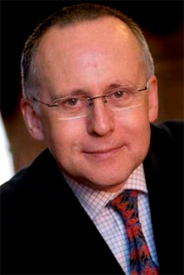
To understand the imperatives of organisations, it is useful to turn idealism on its head once in a while, says Ted Nield
Geoscientist 20.11 November 2010
As the man said, when hauled up before Brighton magistrates for punching a palm-reader who smiled while delivering bad news; one always strives to strike a happy medium – as organisations no less than as individuals. At one end of a slippery pole, Gradgrind businesses run entirely for the owner and customer’s benefit, work to the detriment of employees and their rights. At the other, faceless entities responsible to nobody but themselves follow internal rules for their own convenience, to the exclusion of outsiders in a totalitarian Kafkaesque nightmare.
But these are extremes. In reality, services of any kind should involve a partnership between provider and receiver, from which each derives appropriate and proportional satisfaction. Schools exist to teach children, but they also exist to employ people who want to be teachers. Hospitals exist partly because many people have a burning vocation to be doctors and nurses. Universities teach students, but exist at least in part for the same reason that monasteries used to – because many clever people yearn to be left alone with their books and be protected. Once, such folk obtained everyone’s consent by taking their tithe for serving a God whom everyone feared. Today’s universities like everyone else turn to Mammon, and tell everyone of the huge economic benefit they bring, in return for a trifling investment in research and teaching.
Universities sell aspiration, and their commercial imperative means finding and filling holes in the market with new qualifications that promise to achieve them. Twenty years ago science journalism had no formally established career path. Now there are courses - which, merely by existing, have become the essential entry-level benchmark. This brings many benefits. A cynic might say the universities have played their usual confidence trick, and so helped to make our society even more neotenous than it already is. And true, those entering the profession now come to it a year or two later, further in debt, lower on the property and pension ladder, and still have much to learn on the job. But on the whole, universities are doing very nicely, while students and recruiters now have a front door to aim at.
In this, the month of our Founders’ Dinner, we recall that this Society’s forefathers aspired to make geologists acquainted with one another, stimulate their zeal, adopt one nomenclature, communicate new facts and ascertain what remained to be discovered. And we still perform all these core activities through publishing, conferences, and (of course) eating, drinking and kicking our legs up a bit.
But today the partnership extends further. We also tap into Fellows’ desire to do more together than one can achieve alone. No-one can save a whale unaided – but if that’s what floats your boat, you can join Greenpeace who’ll do it for you. Geologists want to make their voices heard – but 10,000 voices sound more loudly than one. These are all our sturdy ostensibles, worthy objects in their own right. Yet from the “membership organisation” point of view (and as Greenpeace amply demonstrates with its excellent PR) why save the damned whale if your paying supporters never find out you did it?